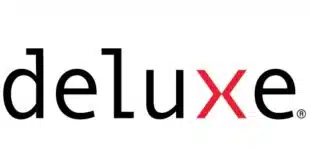Discover Financial Services could find itself in the catbird’s seat if Apple Inc.’s new Apple Pay Cash person-to-person payment service gains popularity as a way to pay merchants. In addition to its main P2P function, Apple Pay Cash is accepted at any merchant location that accepts Apple’s 3-year-old Apple Pay mobile-payment service, and purchase transactions using the new service will go over Discover-owned network rails.
That revelation came in a brief, little-noticed press release Riverwoods, Ill.-based Discover issued Tuesday, a day after Apple launched Apple Pay Cash. “Discover announced today that transactions made with Apple’s new Apple Pay Cash card leverage the Discover Network,” the release says, noting that Apple Pay Cash uses a virtual debit card that resides in Apple’s Wallet application. Later, the release says that customers “can use the money instantly to pay someone or to make purchases using Apple Pay in stores, apps, and on the Web.” Prepaid card services provider Green Dot Corp. and its Green Dot Bank manage the card.

A user of an Apple iPhone running the new iOS 11.2 operating system will see “Discover Debit” identified as the network after opening the phone’s Settings app, then opening the Wallet app within. Presumably, Discover Debit is a reference to the Discover-owned Pulse debit network.
A Discover spokesperson referred inquiries about Apple Pay Cash to Cupertino, Calif.-based Apple, which declined comment.
Discover is certain to generate fees when the customer pays a merchant with Apple Pay Cash, but what the revenue arrangements are between it and Apple are is not publicly known. Clearly, however, Discover is poised to benefit should Apple Pay Cash gain traction as a purchase method.
Two forces are working in Discover’s favor, according to Crone. The first is the generally expanding availability of payments based on near-field communication, the technology used by Apple Pay and other mobile-payment services such as Android Pay. Most of the new EMV chip card terminals in the U.S. have NFC capability, though it may not necessarily be turned on. And many recent-generation smart phones, including Apple’s new iPhone X and 8 and some older models, come with NFC.
Second, Apple Pay Cash works with Messages, Apple’s messaging service, giving it a social-networking overlay similar to that of PayPal Holdings Inc.’s popular Venmo P2P service. Within Messages, users can send, receive, or request funds. The service also works with Apple Watch, and users can give instructions to Siri, Apple’s artificial-intelligence exemplar, to issue funds.
Apple Pay Cash “is not quite a social as Venmo,” Crone notes, but it’s more so than the bank-controlled Zelle P2P service, which operates privately between senders and receivers. As such, Apple Pay Cash could gain usage among the young adults that are the core users of services such as Venmo.
In addition, Discover sets interchange rates for Apple Pay Cash merchant transactions, so it could pull the pricing lever to attract traffic. Since mobile purchases typically rely on advanced authentication and tokenization protocols, Discover could even offer low card-present PIN-debit rates, according to Crone. “With their newly created tender type, they can dictate the interchange rates,” he says.





